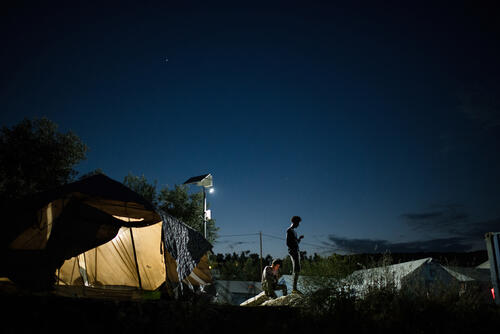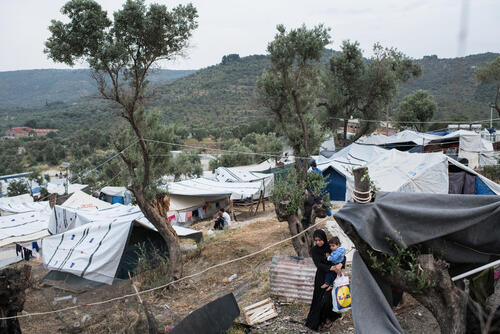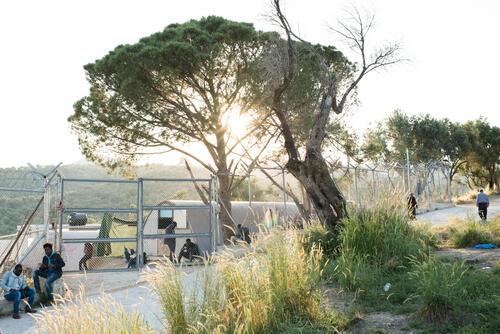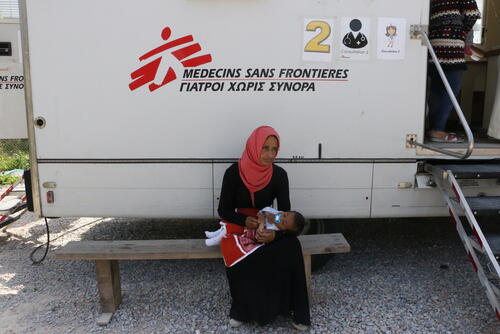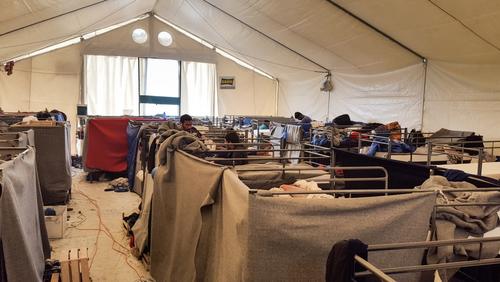- MSF calls for vulnerable people to be moved out of Moria into secure accommodation, and continues to call for a decongestion of the camp.
- MSF insists on an end to policies of containment, and calls on the EU and state authorities to step up access to health and security for those in the camp.
- The EU-Turkey deal is not an effective one; people will continue to flee war and terror in order to survive. Trapping these people in awful and unsafe conditions is simply further traumatising an already extremely vulnerable population.
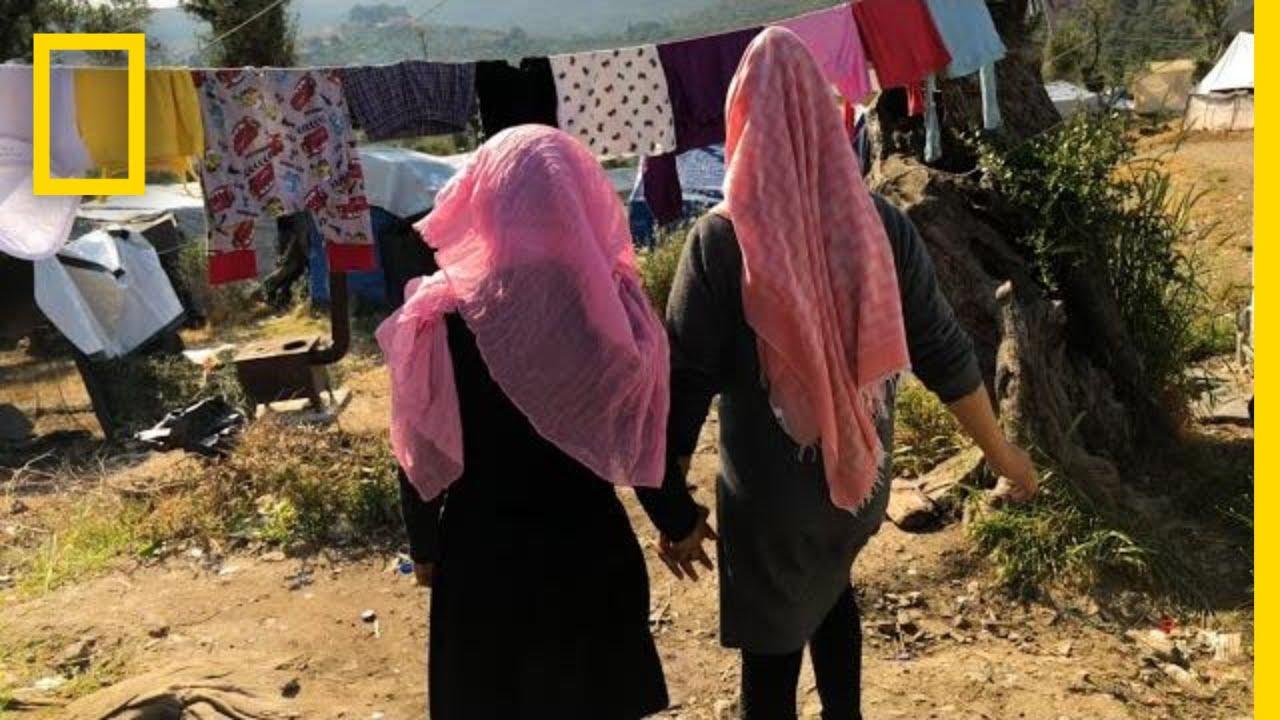
Reshaping the Trauma of Refugee Children in Lesbos | National Geographic
With the migrant and refugee population continuously rising on the island of Lesbos, Greece, the situation in Moria refugee camp is descending into chaos, with regular clashes and riots, incidents of sexual violence, and a sinking state of mental health for the thousands of people trapped in the camp.
Currently, there are over 8,000 people crammed into a space designed for 3,000 in Moria. Conditions are so bad that people’s medical and mental health is being heavily compromised. In the past few months, Médecins Sans Frontières (MSF) has witnessed further escalations of everyday violence in Moria, and treated cases of sexual violence that have occurred in and around the camp.
Much of the tension is caused by overcrowding and a lack of decent and humane living conditions. In the main area of Moria camp and in the adjacent overflow camp known as Olive Grove, there are 72 people per functioning toilet and 84 people per functioning shower. This is well below the recommended humanitarian standards in emergency situations.
A huge concern for MSF is the fact that this insecurity, the lack of humane living conditions and the limbo people are left in for months or years on end are taking a severe toll on inhabitants’ mental health. MSF’s mental health clinic in Mytilene only accepts the most severe cases of mental health problems, and is currently working at full capacity.
“Part of the reason people's mental health deteriorates so drastically here in Lesbos is that they come from traumatising experiences, and reach Europe hoping for refuge and dignity. But what they find is the opposite: more violence and more inhumane conditions,” says Giovanna Bonvini, mental health activity manager at Mytilene clinic.
“The other day a young man who was a victim of sexual violence was bought to the clinic by a friend in the midst of a psychotic breakdown. He has severe post-traumatic stress disorder and was suffering from hallucinations, flashbacks and noises from all around. He could not stop crying during the two-hour session,” says Bonvini.
“He is scared of the dark and is constantly terrified of being attacked in Moria. The team started him on medication and he is having intensive psychological sessions, so he is now stable. But for as long as he is living in Moria he will never make much progress; he will be locked in a cycle of despair and distress.”
Part of the reason people's mental health deteriorates so drastically here in Lesbos is that they come from traumatising experiences, and reach Europe hoping for refuge and dignity. But what they find is the opposite.Giovanna Bonvini, mental health activity manager, MSF Greece
MSF is now receiving around 15 to 18 referrals a week from other NGOs for cases of acute mental health problems, including children. But this is just the tip of the iceberg; there is a deep undercurrent of people suffering from severe mental health problems that we do not have the capacity to treat. This is due to the fact that MSF is the only organisation providing such specialised mental healthcare for this large and vulnerable population.
“The majority of these people are new arrivals suffering from psychotic symptoms including hallucinations, agitation, confusion and disorientation, and who have strong suicidal ideations or have attempted suicide,” says Dr Alessandro Barberio, MSF psychiatrist at Mytilene clinic.
What is also deeply worrying is that we know, through our mental health group therapy for children, that both unaccompanied children and children with family in the camp are being re-traumatised by their experiences of living in Moria.
“In the past four weeks, we have received an increase in the number of minors suffering from intense panic attacks, suicidal ideations and suicide attempts. The appalling living conditions and the everyday violence in Moria camp is having a severely detrimental impact on the mental health of our patients, and is causing many of our patients to develop severe mental health conditions,” says Dr Barberio.
MSF calls for vulnerable people to be moved out of Moria into secure accommodation, and continues to call for a decongestion of the camp. Furthermore, we insist on an end to policies of containment, and call on the EU and state authorities to step up access to health and security for those in the camp.
Our experience shows that the deterrence policy of the EU-Turkey deal is not an effective one; people will continue to flee war and terror in order to survive. Trapping these people in awful and unsafe conditions is simply further traumatising an already extremely vulnerable population.



